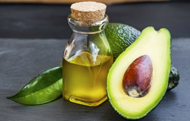





1. Avocado Facts
2. Types of Avocado
3. Avocado Nutritional Value
4. Avocado Health Benefits
The avocado, alligator pear or avocado pear (Persea americana) is an evergreen tree in the laurel family (Lauraceae). It is native to the Americas, with archaeological evidence of early human avocado use dating back thousands of years across various regions of Central and South America. It was prized for its large and unusually oily fruit. The native range of avocado (Persea americana) extends from Mexico to Peru, encompassing much of Central America and parts of northern and western South America.
Its fruit, sometimes also referred to as an alligator pear or avocado pear, is botanically a large berry containing a single large seed. Sequencing of its genome showed that the evolution of avocados was shaped by polyploidy events and that commercial varieties have a hybrid origin. Avocado trees are partly self-pollinating and are often propagated through grafting to maintain consistent fruit output. Avocados are presently cultivated in the tropical and Mediterranean climates of many countries.
The fruit of domestic varieties have smooth, buttery, golden-green flesh when ripe. Depending on the cultivar, avocados have green, brown, purplish, or black skin, and may be pear-shaped, egg-shaped, or spherical. For commercial purposes, the fruits are picked while unripe and ripened after harvesting. The nutrient density and high fat content of avocado flesh are advantages for various cuisines, including vegetarian diets.
History and Origin
Avocados originated in south-central Mexico, where they were first domesticated thousands of years ago. Archaeological evidence dates their use back at least 10,000 years. The Spanish encountered them in the 16th century, and the fruit was introduced to Europe and other parts of the world, with commercial cultivation in places like California beginning in the early 1900s.
- • Hass
- • Shepard
- • Reed
- • Sharwil
- • Wurtz
- • Bacon
- • Fuerte
The main avocado types sold in Australia are Hass and Shepard, with Hass being the most common. Other varieties include Reed, Sharwil, Wurtz, and Bacon, though they are less prevalent.
Main varieties
Hass: This is the most dominant variety, accounting for about 81% of Australian production. They have a pebbly skin that turns from green to purple-black when ripe.
Shepard: This is the second most common variety, making up about 16% of production. They are known for holding their green colour for hours after slicing, making them great for sandwiches.
Other varieties
Reed: A larger, round avocado with a creamy texture and a slightly sweet flavour.
Sharwil: A popular variety in certain regions like Queensland.
Wurtz: A smaller "dwarf" variety that is suitable for smaller gardens.
Bacon: This variety is more frost-tolerant and is grown in cooler climates in Australia, with a light, creamy texture and subtle flavour.
Fuerte: Once the foundation of the Australian industry, this variety is now less common in shops due to its delicate skin, but some connoisseurs still prefer its creamy, hazelnut-like flavour with a hint of aniseed.
Fruit ” Avocado ” ( Nutritional value )
Nutritional value per 100 g
Avocados, raw, all commercial varieties
|
Nutrient ( Proximate’s )
|
Unit
|
Value
|
Daily Value %
|
|
Energy
|
kcal
|
160
|
8%
|
|
Protein
|
g
|
2.00
|
4%
|
|
Total lipid (fat)
|
g
|
14.66
|
18.7%
|
|
Carbohydrate, by difference
|
g
|
8.53
|
3.1%
|
|
Fiber, total dietary
|
g
|
6.7
|
23.9%
|
|
Sugars, total
|
g
|
0.66
|
|
|
Minerals
|
|||
|
Calcium, Ca
|
mg
|
12
|
0.9%
|
|
Iron, Fe
|
mg
|
0.55
|
3.0%
|
|
Magnesium, Mg
|
mg
|
29
|
6.9%
|
|
Phosphorus, P
|
mg
|
52
|
4.1%
|
|
Potassium, K
|
mg
|
485
|
10.3%
|
|
Sodium, Na
|
mg
|
7
|
0.3%
|
|
Zinc, Zn
|
mg
|
0.64
|
5.8%
|
|
Copper, Cu
|
mg
|
0.190
|
21.1%
|
|
Manganese, Mn
|
mg
|
0.142
|
6.1%
|
|
Selenium, Se
|
mcg
|
0.4
|
0.7%
|
|
Fluoride, F
|
mcg
|
7.0
|
|
|
Vitamins
|
|||
|
Vitamin C, total ascorbic acid
|
mg
|
10.0
|
11.1%
|
|
Thiamin (B-1)
|
mg
|
0.067
|
5.5%
|
|
Riboflavin (B-2)
|
mg
|
0.130
|
10%
|
|
Niacin (B-3)
|
mg
|
1.738
|
10.8%
|
|
Pantothenic acid (B-5)
|
mg
|
1.389
|
27.7%
|
|
Vitamin B-6
|
mg
|
0.257
|
15.1%
|
|
Vitamin B-12
|
mg
|
0.00
|
|
|
Folate DFE (dietary folate) (B-9)
|
mcg
|
81
|
20.2%
|
|
Vitamin A, RAE (retinol)
|
mcg
|
7
|
0.7%
|
|
Vitamin E (alpha-tocopherol)
|
mg
|
2.07
|
13.8%
|
|
Vitamin D
|
mcg
|
0
|
|
|
Vitamin K (phylloquinone)
|
mcg
|
21.0
|
17.5%
|
|
Lipids
|
|||
|
Saturated Fatty Acids
|
g
|
2.126
|
10.6%
|
|
Monounsaturated Fatty Acids
|
g
|
9.799
|
|
|
Polyunsaturated Fatty Acids
|
g
|
1.816
|
|
|
Trans Fatty Acids
|
g
|
0.000
|
|
|
Carotenoids
|
|||
|
Beta-Carotene
|
mcg
|
62
|
|
| Alpha-Carotene |
mcg
|
24
|
|
|
Beta-Cryptoxanthin
|
mcg
|
28
|
|
|
Lutein + zeaxanthin
|
mcg
|
271
|
|

|
Reference Values are based on a 2,000 Calorie Intake, for Adults and Children 4 or More Years of Age. Your daily values may be higher or lower depending on your calorie needs.
|
|
Percentages are roughly approximated using (RDA) Recommended Dietary Allowances for adults. Source: Nutrient Database – USDA (United States Department of Agriculture)
|
|
Reference Values for Nutrition – FDA U.S. Food and Drug Administration
|
Avocado Nutritional Value
Avocados provide numerous health benefits due to their rich content of healthy fats, fiber, vitamins, and minerals. Avocados provide heart health through beneficial monounsaturated fats that lower bad cholesterol, and improved digestion from high fiber content. They also support brain and eye health due to antioxidants like lutein, and avocados are linked to improved weight management, enhanced nutrient absorption, and bone health.
- REDUCED INFLAMMATION
Avocados help reduce inflammation due to their high content of monounsaturated fats, antioxidants like carotenoids and polyphenols, and vitamins, especially vitamin E. These compounds, found in both the flesh and potentially the seeds, work to combat inflammatory processes in the body, and a diet high in avocados is associated with a reduced inflammatory response. - BONE HEALTH
Avocados support bone health primarily through their high vitamin K content, which helps the body absorb and utilize calcium. They also provide other beneficial nutrients like magnesium, potassium, and vitamin D, which further contribute to bone mineral density and strength. - WEIGHT MANAGEMENT
Avocados can support weight management due to their high content of healthy fats and fiber, which increase feelings of fullness and can reduce overall calorie intake. Studies show that including one avocado a day in a weight-loss diet can aid weight loss without decreasing satiety and can even help maintain body weight over time. They can be a beneficial substitute for less healthy fats, like butter or cheese. - HEART HEALTH
Avocados support heart health by lowering "bad" LDL cholesterol, raising "good" HDL cholesterol, and reducing triglycerides, all thanks to their heart-healthy monounsaturated fats. Eating at least two servings of avocado per week is linked to a lower risk of cardiovascular disease and coronary heart disease. They are also a good source of fiber and potassium, which further contributes to a cardioprotective eating pattern.

- NUTRIENT ABSORPTION
Avocados improve nutrient absorption because their healthy monounsaturated fats help the body absorb fat-soluble nutrients like vitamins A, D, E, and K, as well as carotenoids like lutein and beta-carotene. Adding avocado to meals can make the absorption of other nutrients from that meal two to five times more effective. - DIGESTIVE HEALTH
Avocados benefit digestive health through their high fiber content, which promotes regularity and feeds beneficial gut bacteria. They are also rich in prebiotics, healthy fats, and nutrients like potassium, which help improve gut function and the overall composition of the gut microbiome. Daily consumption has been shown to lead to greater microbial diversity and more beneficial bacteria. - EYE HEALTH
Avocados support eye health due to their high levels of lutein and zeaxanthin, antioxidants that protect against age-related eye diseases like cataracts and macular degeneration. These nutrients help filter damaging blue light, and avocados also contain healthy fats that help the body absorb other beneficial fat-soluble vitamins. - BRAIN FUNCTION
Avocados support brain function through a combination of key nutrients, including monounsaturated fats for healthy blood flow, and antioxidants like lutein and zeaxanthin, which are linked to improved cognitive performance, memory, and attention. They also provide B vitamins and minerals that are essential for brain development, energy production, and neurotransmitter synthesis, which can help with mood regulation.
References
Nutrient Database – USDA (United States Department of Agriculture)
Reference Values for Nutrition – FDA U.S. Food and Drug Administration
Heart health - Avocados support heart health by lowering "bad" LDL cholesterol, raising "good" HDL cholesterol, and reducing triglycerides, all thanks to their heart-healthy monounsaturated fats. Eating at least two servings of avocado per week is linked to a lower risk of cardiovascular disease and coronary heart disease. They are also a good source of fiber and potassium, which further contributes to a cardioprotective eating pattern.
Digestive health - Avocados benefit digestive health through their high fiber content, which promotes regularity and feeds beneficial gut bacteria. They are also rich in prebiotics, healthy fats, and nutrients like potassium, which help improve gut function and the overall composition of the gut microbiome. Daily consumption has been shown to lead to greater microbial diversity and more beneficial bacteria.
Eye health - Avocados support eye health due to their high levels of lutein and zeaxanthin, antioxidants that protect against age-related eye diseases like cataracts and macular degeneration. These nutrients help filter damaging blue light, and avocados also contain healthy fats that help the body absorb other beneficial fat-soluble vitamins.
Brain function - Avocados support brain function through a combination of key nutrients, including monounsaturated fats for healthy blood flow, and antioxidants like lutein and zeaxanthin, which are linked to improved cognitive performance, memory, and attention. They also provide B vitamins (like B6 and folate) and minerals that are essential for brain development, energy production, and neurotransmitter synthesis, which can help with mood regulation.
Bone health - Avocados support bone health primarily through their high vitamin K content, which helps the body absorb and utilize calcium. They also provide other beneficial nutrients like magnesium, potassium, and vitamin D, which further contribute to bone mineral density and strength.
Nutrient absorption - Avocados improve nutrient absorption because their healthy monounsaturated fats help the body absorb fat-soluble nutrients like vitamins A, D, E, and K, as well as carotenoids like lutein and beta-carotene. Adding avocado to meals can make the absorption of other nutrients from that meal two to five times more effective.
Weight management - Avocados can support weight management due to their high content of healthy fats and fiber, which increase feelings of fullness and can reduce overall calorie intake. Studies show that including one avocado a day in a weight-loss diet can aid weight loss without decreasing satiety and can even help maintain body weight over time. They can be a beneficial substitute for less healthy fats, like butter or cheese.
Reduced inflammation - Avocados help reduce inflammation due to their high content of monounsaturated fats, antioxidants like carotenoids and polyphenols, and vitamins, especially vitamin E. These compounds, found in both the flesh and potentially the seeds, work to combat inflammatory processes in the body, and a diet high in avocados is associated with a reduced inflammatory response.
